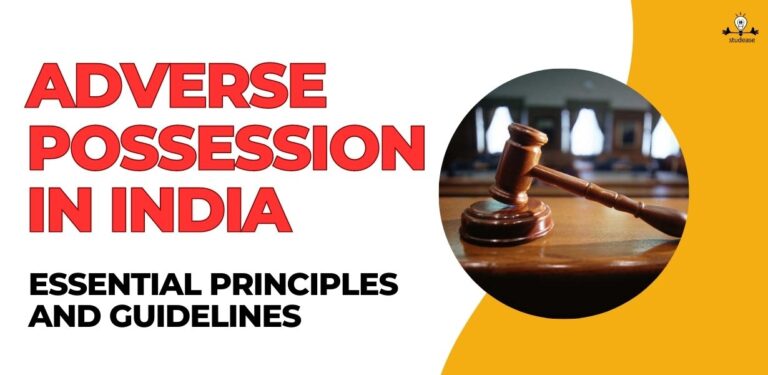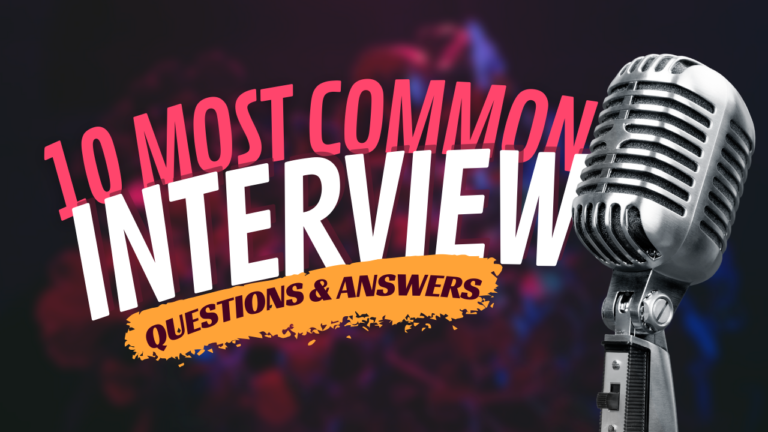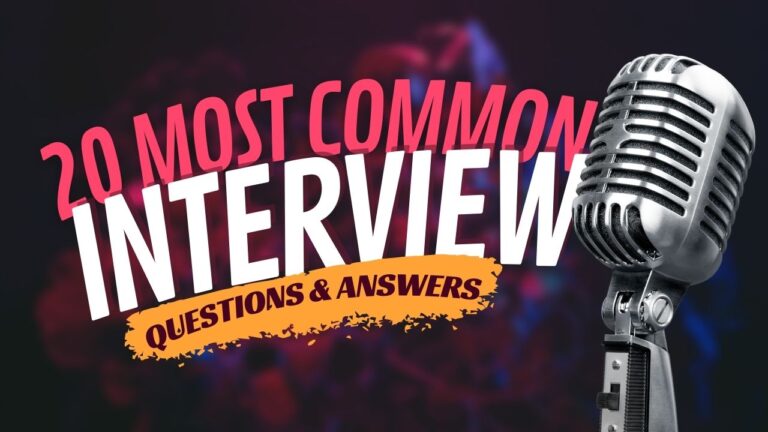100 Interview Questions – JP Morgan: Master Your Finance Career Prep
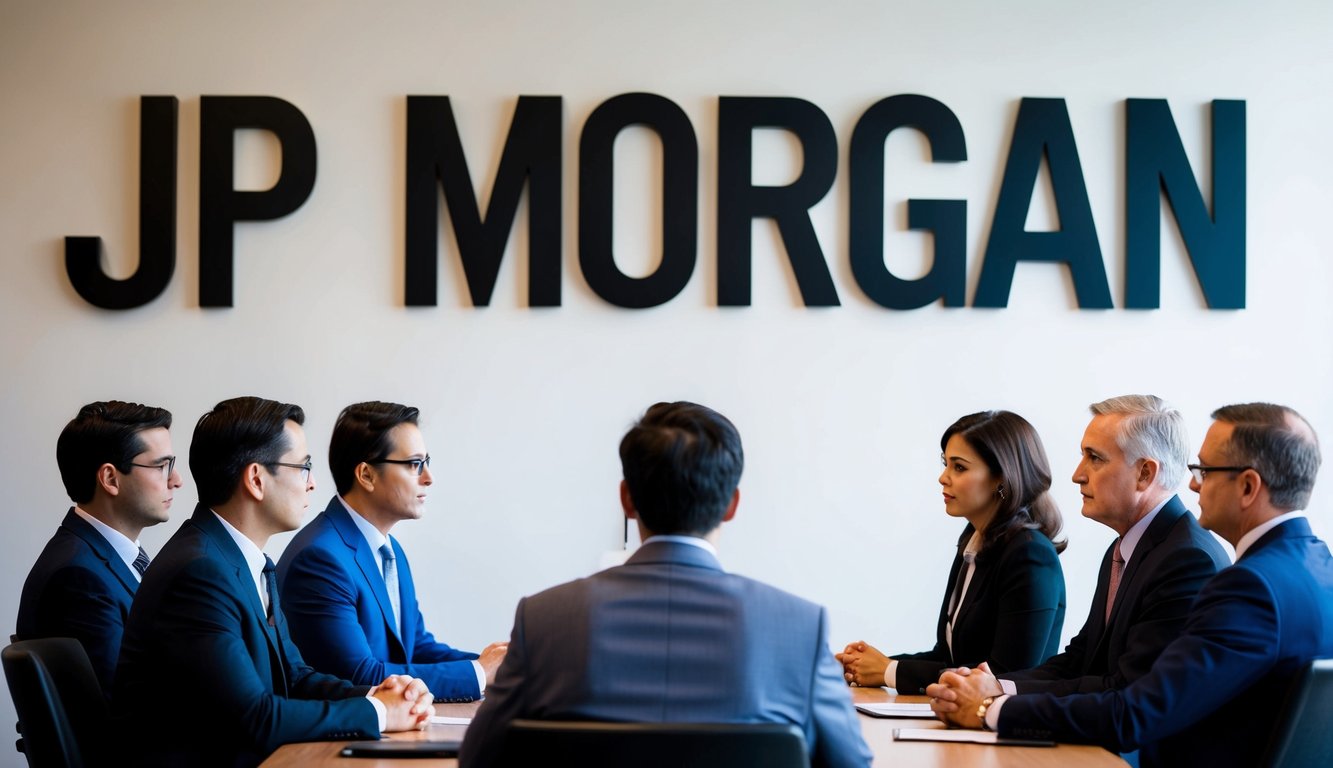
Preparing for an interview at JP Morgan can be bit technical, but not if you know what to expect. With a reputation in financial services, JP Morgan seeks candidates who demonstrate strong analytical skills and a deep interest in financial markets.
If you are preparing for the finance job interview. You are at the right place. This post covers 100 Interview Questions for JP Morgan Job.
One critical aspect to focus on is understanding JP Morgan’s core values and how they align with your own.

You will likely face questions that evaluate not just your technical skills, but your problem-solving abilities and how you handle pressure.
Preparing answers to behavioral questions that showcase your experiences and achievements can set you apart. Practicing with common interview questions will help increase your confidence.
Being aware of JP Morgan’s latest projects and financial trends will give you an edge, showing your enthusiasm and knowledge about the company. Demonstrating a clear grasp of the company’s mission and how you can contribute will leave a lasting impression.
Understanding the Interview Process at JP Morgan
The interview process at JP Morgan is thorough, with several stages to assess different skills. You need to prepare well, focusing on your resume, online presence, and networking.
Overview of JP Morgan’s Recruitment Process
JP Morgan’s recruitment process begins with an application. You can apply online or through campus recruiting. After that, there might be an online assessment or in-person-interview. These assess your technical and behavioral skills.
If you succeed in these stages, you may be invited to a Superday. This can include multiple interviews, like technical, HR, and behavioral interviews.
Receiving feedback is common afterwards, which could be crucial for next steps. Be ready to follow up professionally if you don’t hear back promptly.
Pre-Interview Preparation Tips
Success in JP Morgan interviews often hinges on preparation. Start by practicing common interview questions. Confidence comes from practice, so work on both technical and behavioral questions.
It helps to use resources like mock interviews.
Develop a solid grasp of JP Morgan’s values and business areas. Show that you can align your skills and experiences to meet their needs. Reviewing past interview experiences shared online can provide valuable insights.
Crafting an Effective Resume
Your resume should clearly outline your skills and achievements. Use concise bullet points to list your experiences and results.
Highlight areas where you’ve demonstrated leadership, problem-solving, and success in past roles.
Tailor your resume for JP Morgan by emphasizing financial or relevant industry experience. Include keywords from the job description to pass through Applicant Tracking Systems. Ensure your contact information is clear and professional, inviting a straightforward follow-up.
Impressive Online Profile and Networking
Your online profile plays a crucial role in making a strong first impression. Ensure that your LinkedIn profile is up to date and aligns with your resume. Highlight key projects, skills, and endorsements.
Networking can open doors to opportunities within JP Morgan. Connect with alumni or professionals in the field. Engage in online forums or attend industry events for insider tips. A well-maintained profile and active networking can increase your visibility to recruiters.
Types of Interview Questions

When preparing for a JP Morgan interview, it’s important to focus on two key types of questions. Behavioral questions look at your past experiences to predict future behavior, like leadership and problem-solving skills.
Analytical questions assess your ability to deal with numbers, data, and logical thinking, crucial in areas like investment banking and financial analysis.
Behavioral Interview Questions
These questions evaluate how you handled challenges or tasks in the past. Expect questions about leadership, teamwork, and your approach to problem-solving.
JP Morgan will likely ask about situations where you demonstrated leadership, how you resolved conflicts, and managed time-sensitive projects.
Highlight specific experiences where your efforts led to successful outcomes. Aim to showcase how your skills could benefit JP Morgan. Emphasizing your adaptability and initiative can set you apart as a strong candidate.
Analytical Questions
This section checks your ability to think critically and solve complex problems. You might encounter questions involving financial statements, coding, and data analysis.
Topics could include understanding financial markets, interpreting data trends, or solving algorithm problems.
Prepare by reviewing the basics of financial analysis, and brush up on coding languages you know. Understanding data structures and the object-oriented model can also be beneficial.
Demonstrating strong analytical skills is key, as JP Morgan values thorough and logical thinking in potential hires.
Interview Questions

Preparing for an interview at JP Morgan? Consider these questions to help boost your confidence and communication skills.
List of 100 Interview Questions JPMorgan
- Tell me about yourself.
- Sample Answer: “I graduated with a degree in Finance from XYZ University, where I developed a strong foundation in financial analysis and investment strategies. After graduation, I interned at ABC Company, where I assisted in market research and financial modeling. I am passionate about the finance industry and am excited about the opportunity to contribute to JPMorgan’s success.”
- Why do you want to work for JPMorgan?
- Sample Answer: “JPMorgan is a leader in the financial services industry, known for its innovation and commitment to client success. I admire the company’s focus on integrity and teamwork, and I am eager to be part of an organization that values professional development and community involvement.”
- What are your greatest strengths?
- Sample Answer: “One of my greatest strengths is my analytical ability. I enjoy diving deep into data to extract insights and make informed decisions. Additionally, I am a strong communicator, which allows me to convey complex information clearly to clients and team members.”
- What is your greatest weakness?
- Sample Answer: “I tend to be a perfectionist, which sometimes leads me to spend more time on a task than necessary. However, I am learning to balance quality with efficiency and set more realistic deadlines for myself.”
- Describe a challenging situation you faced and how you overcame it.
- Sample Answer: “During my internship, I was tasked with preparing a presentation for a major client meeting. A day before the meeting, I realized that key data was missing. I quickly reached out to my team, gathered the necessary information, and worked late to incorporate it into the presentation. The meeting went well, and the client appreciated our thoroughness.”
- Where do you see yourself in five years?
- Sample Answer: “In five years, I see myself as a well-rounded finance professional with expertise in investment banking. I hope to take on greater responsibilities and potentially lead projects, while continuing to learn and develop my skills at JPMorgan.”
- How do you handle stress and pressure?
- Sample Answer: “I handle stress by staying organized and prioritizing my tasks. When faced with tight deadlines, I focus on breaking down projects into manageable parts and setting specific goals. I also find that taking short breaks helps me maintain my productivity.”
- What do you know about our company culture?
- Sample Answer: “I understand that JPMorgan values collaboration, diversity, and innovation. The company fosters an inclusive environment where employees are encouraged to share their ideas and contribute to team success. I appreciate this culture as it aligns with my own values.”
- Why should we hire you?
- Sample Answer: “You should hire me because I bring a unique combination of analytical skills, a strong work ethic, and a passion for finance. My background in financial analysis and my proactive approach to problem-solving make me a great fit for the team.”
- What are your salary expectations?
- Sample Answer: “Based on my research and the industry standards for this role, I would expect a salary in the range of $X to $Y. However, I am open to discussing this further based on the overall compensation package.”
- Can you explain a financial concept to me?
- Sample Answer: “Certainly! One key financial concept is the time value of money, which states that a dollar today is worth more than a dollar in the future due to its potential earning capacity. This principle underpins many financial decisions, such as investment analysis and loan structuring.”
- What do you think are the key qualities of a successful team?
- Sample Answer: “Successful teams possess strong communication, trust, and a shared vision. Each member should feel valued and empowered to contribute their ideas. Collaboration and respect for diverse perspectives also enhance team performance.”
- Describe your experience with financial modeling.
- Sample Answer: “In my previous internship, I built financial models to project revenue and expenses for various projects. I used Excel to create detailed forecasts, which helped the team make informed decisions about resource allocation and investment opportunities.”
- How do you stay updated on financial news and trends?
- Sample Answer: “I stay updated by following reputable financial news sources such as Bloomberg and The Wall Street Journal. I also subscribe to industry newsletters and participate in finance-related webinars and discussions to deepen my understanding of current trends.”
- What is your understanding of risk management?
- Sample Answer: “Risk management involves identifying, assessing, and mitigating potential risks that could impact an organization’s financial health. Effective risk management strategies help protect assets and ensure long-term stability.”
- How would you approach a new project?
- Sample Answer: “I would start by clearly defining the project objectives and scope. Next, I would gather relevant data and conduct thorough research. I would then create a project plan outlining key milestones and deadlines, ensuring regular communication with stakeholders throughout the process.”
- What is your experience with data analysis?
- Sample Answer: “I have experience analyzing financial data using Excel and other analytical tools. I have worked on projects that required me to interpret large datasets to identify trends and make recommendations based on my findings.”
- Can you discuss a time when you had to work with a difficult team member?
- Sample Answer: “In a group project, I worked with a team member who had a different communication style. I took the initiative to have an open conversation with them, where we discussed our working preferences. This helped us find common ground and improved our collaboration.”
- What do you think is the biggest challenge facing the banking industry today?
- Sample Answer: “One of the biggest challenges is adapting to rapid technological changes and the rise of fintech companies. Traditional banks must innovate and enhance their digital offerings to meet customer expectations and remain competitive.”
- How do you prioritize your work?
- Sample Answer: “I prioritize my work by assessing deadlines and the impact of each task. I create a to-do list and categorize tasks based on urgency and importance, ensuring that I focus on high-priority items first.”
- What are your thoughts on teamwork?
- Sample Answer: “I believe teamwork is essential for success in any organization. Collaborative efforts bring diverse perspectives and skills to the table, leading to more innovative solutions and better outcomes.”
- Describe a time when you had to meet a tight deadline.
- Sample Answer: “During my internship, I was given a last-minute assignment that required a detailed market analysis. I quickly organized my research, focused on the most relevant data, and worked efficiently to complete the analysis ahead of the deadline, which impressed my supervisor.”
- How do you handle constructive criticism?
- Sample Answer: “I view constructive criticism as an opportunity for growth. I listen carefully to feedback, ask clarifying questions if needed, and take actionable steps to improve my performance based on the insights provided.”
- What motivates you to succeed?
- Sample Answer: “I am motivated by the desire to continuously learn and grow in my career. Achieving personal and team goals, as well as making a positive impact on clients and colleagues, drives my passion for success.”
- Can you explain the difference between a stock and a bond?
- Sample Answer: “A stock represents ownership in a company, allowing shareholders to benefit from its growth and profits, while a bond is a debt security where the investor lends money to the issuer in exchange for periodic interest payments and the return of the principal at maturity.”
- What is your experience with client interactions?
- Sample Answer: “I have had the opportunity to interact with clients during my internship, where I assisted in preparing presentations and reports. I learned the importance of active listening and tailoring communication to meet client needs.”
- How do you approach problem-solving?
- Sample Answer: “I approach problem-solving by first defining the problem clearly. Then, I gather relevant information, brainstorm potential solutions, and evaluate the pros and cons of each option before implementing the best course of action.”
- What skills do you think are essential for a career in finance?
- Sample Answer: “Essential skills for a finance career include analytical thinking, attention to detail, strong communication abilities, and proficiency in financial modeling and data analysis tools. Additionally, a solid understanding of market trends and economic principles is crucial.”
- How do you build relationships with colleagues?
- Sample Answer: “I build relationships by being approachable and open to collaboration. I make an effort to engage with my colleagues, participate in team activities, and offer support when needed, fostering a positive work environment.”
- What do you consider to be your biggest professional achievement?
- Sample Answer: “My biggest professional achievement was leading a team project during my internship, where we successfully developed a financial analysis report that helped guide strategic decisions. It was rewarding to see our work have a tangible impact.”
- How do you handle ambiguity in your work?
- Sample Answer: “I handle ambiguity by seeking clarification and gathering as much information as possible. I also remain flexible and open-minded, ready to adapt my approach as new information becomes available.”
- What are your thoughts on ethical practices in finance?
- Sample Answer: “Ethical practices are fundamental to maintaining trust and integrity in the finance industry. Upholding ethical standards ensures that clients receive fair treatment and that the industry operates transparently.”
- What tools or software are you familiar with?
- Sample Answer: “I am proficient in Microsoft Excel for financial modeling and analysis, and I have experience with data visualization tools like Tableau. I am also familiar with financial software such as Bloomberg and QuickBooks.”
- Describe a time when you had to learn something quickly.
- Sample Answer: “During my internship, I was assigned to a project requiring knowledge of a new financial software. I dedicated extra hours to online tutorials and practice, quickly becoming proficient and successfully contributing to the project.”
- What role do you think technology plays in the finance industry?
- Sample Answer: “Technology plays a crucial role in the finance industry by enhancing efficiency, improving data analysis, and enabling better customer service. Innovations such as AI and blockchain are transforming how financial transactions are conducted and managed.”
Additional Interview Questions
- What do you think is the future of banking?
- How do you ensure accuracy in your work?
- What is your experience with financial regulations?
- Can you describe a time when you had to persuade someone to see your point of view?
- How do you handle competing priorities?
- What is your experience with market research?
- How do you measure success in your role?
- Can you explain what a P&L statement is?
- What is your approach to networking?
- How would you explain a complex financial product to a client?
- What do you enjoy most about working in finance?
- How do you approach goal-setting?
- What is your experience with investment strategies?
- Can you discuss a time you had to adapt to significant change?
- How do you maintain work-life balance?
- What do you think are the most important trends in finance right now?
- How do you handle difficult conversations?
- What is your experience with budgeting?
- Can you explain the concept of diversification?
- How do you prepare for a presentation?
- What is your experience with project management?
- How do you ensure compliance with regulations?
- Can you describe your experience with mergers and acquisitions?
- What is your understanding of capital markets?
- How do you approach continuous learning?
- What is your experience with investment analysis?
- Can you discuss a time when you had to work under pressure?
- How do you handle failure?
- What is your experience with financial reporting?
- Can you explain the difference between qualitative and quantitative analysis?
- How do you approach client relationship management?
- What are your thoughts on sustainability in finance?
- Can you describe a time when you had to think outside the box?
- What is your experience with portfolio management?
- How do you stay organized in your work?
- Can you explain what a credit rating is?
- What is your experience with financial forecasting?
- How do you handle feedback from clients?
- Can you discuss a time when you had to make a tough decision?
- What is your understanding of derivatives?
- How do you approach conflict resolution?
- What is your experience with equity research?
- Can you explain the concept of liquidity?
- What is your experience with financial audits?
- How do you ensure effective communication with clients?
- Can you describe a time when you exceeded expectations?
- What is your understanding of interest rates?
- How do you approach strategic planning?
- What is your experience with risk assessment?
- Can you explain the concept of market capitalization?
- What is your experience with financial technology (fintech)?
- Can you discuss a time when you had to lead a team?
- How do you approach data integrity?
- What is your understanding of the Federal Reserve’s role?
- Can you explain what a balance sheet is?
- What is your experience with international finance?
- How do you approach stakeholder management?
- Can you describe a time when you had to analyze complex data?
- What is your understanding of behavioral finance?
- How do you handle tight deadlines?
- Can you explain the concept of inflation?
- What is your experience with commodity markets?
- How do you approach mentoring others?
- Can you discuss a time when you had to adapt your communication style?
- What is your understanding of wealth management?
Remember to use confident body language throughout the interview and follow up with a polite thank-you email. This can reinforce your positive impression and show your professionalism.
Frequently Asked Questions: JPMorgan Job Interview
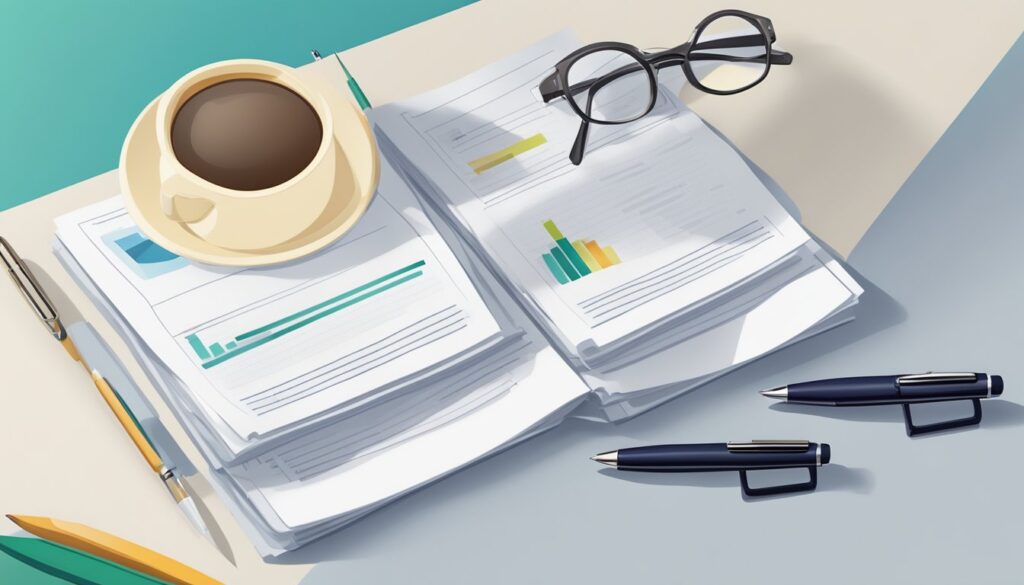
You’ll find insights into JP Morgan’s values, interview styles, and preparation tips to help you get ready for your interview. Understand what to expect at different stages and how to approach each one confidently.
What can you tell us about J.P. Morgan’s core values and how they resonate with you?
JP Morgan values integrity, excellence, and teamwork. It’s important to show how these values align with your personal experiences. You might want to share relevant examples from past roles where you demonstrated these principles.
What types of questions can one expect during a JP Morgan investment banking interview?
Expect questions that test your financial knowledge, problem-solving skills, and understanding of current market trends. You may also face behavioral questions to assess how you handle work situations and collaborate with others.
How should a candidate prepare for a technical interview at JP Morgan?
Technical interviews require a strong understanding of financial concepts. Practice solving complex quantitative problems and ensure you are fluent in industry-specific software tools.
It can be useful to review past projects and how they align with the role you’re pursuing.
Can you describe the interview process for experienced hires at JP Morgan?
Experienced hires typically face multiple rounds, including initial phone screenings and in-person interviews. You may talk with team leaders, HR representatives, and potential colleagues.
These interviews focus on both technical skills and cultural fit.
What strategies can be helpful in succeeding in a JP Morgan superday interview event?
During superday events, confidence and clear communication are key. Practice concise responses and ensure you understand each question before answering.
Engage with different team members to show your adaptability and teamwork skills.
Throughout the JP Morgan interview stages, how many rounds are there typically?
Usually, the process includes 3-5 rounds. This can vary depending on the role. Initial screenings are often followed by technical assessments and behavioral interviews with several team members.
All the Best !



